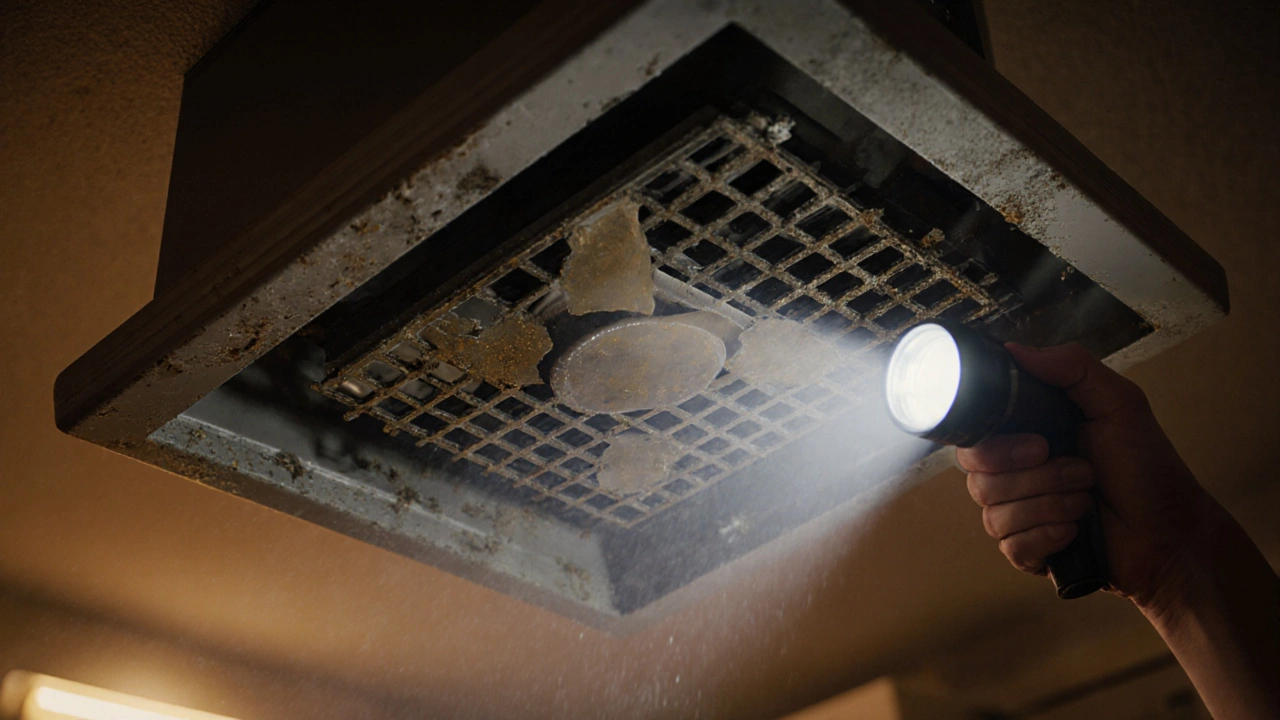Fan Troubleshooting: Simple Steps to Fix Your Extractor and Bathroom Fans
Fans in the kitchen or bathroom are small but they work hard. When they get noisy, stop working, or blow weak air, most people think they need a new fan. That’s not always true. In many cases a quick clean or a loose screw is the whole problem.
Common Signs Your Fan Needs Attention
First, listen. A squealing or rattling noise usually means dust has built up on the motor or the fan blades are hitting something. If the fan runs but the airflow feels weak, the blades might be clogged with grease or lint. Another tell‑tale sign is a burning smell – that’s the motor getting too hot and it needs to be turned off right away.
Next, check the power. A fan that won’t turn on at all could be a loose wire, a dead switch, or a tripped circuit breaker. Look at the switch on the wall and make sure it’s on. If the fan still stays dead, pull the plug and try a different outlet. If it works elsewhere, the original outlet might be the issue.
DIY Fixes and When to Call a Pro
Most fan issues can be tackled with a screwdriver and a vacuum. Turn off the fan at the switch, remove the cover, and gently vacuum the motor housing and blades. Use a soft brush for stubborn grime. After cleaning, tighten any loose screws you see and re‑assemble.
If cleaning doesn’t help, the motor may need a little oil. Many fan motors have a small oil port; a few drops of light machine oil can restore smooth rotation. Be careful not to over‑oil – a little goes a long way.
When you should call a professional: the motor makes a grinding sound even after cleaning, the fan still doesn’t run, or you see electrical wiring that looks damaged. Also, if the fan is more than ten years old and the motor is burnt out, replacement is often cheaper than a full repair.
Safety first. Always switch off the power at the breaker before any work. If you’re not comfortable removing the cover or dealing with wires, it’s better to let a qualified technician handle it. A pro can test the motor, replace faulty parts, and make sure everything meets electrical standards.
Regular maintenance makes a big difference. Put a simple schedule in place: clean the fan every three months, check the switch once a year, and listen for new noises. A quick check can stop a small problem from becoming a big one.
By following these steps you can keep your kitchen extractor and bathroom fan running smoothly without spending a lot of money. If the fan still misbehaves after your DIY attempts, don’t hesitate to call a local repair service – they have the tools and experience to get it working again fast.

Extractor Fan Won’t Work? How to Diagnose & Fix Common Issues
Learn how to troubleshoot and fix a non‑working extractor fan with step‑by‑step checks, cleaning tips, and when to call a professional.

Extractor Fan Working: How to Easily Check If Yours Is Doing the Job
Not sure if your extractor fan is doing what it's supposed to? This article breaks down easy ways to check if your fan is actually working, signals to watch out for when something’s off, and when you might need to take action. Discover practical tips you can use right now, with zero tech jargon. You’ll also get a few handy tricks to keep your fan running smoothly and spot problems before they get worse. If you want clear answers, you're in the right place.

How to Fix an Extractor Fan That Suddenly Stopped Working
Ever had an extractor fan suddenly stop working and wondered what to do next? This article walks through practical steps to diagnose and fix common issues. From checking the power supply to cleaning clogged blades, discover straightforward solutions to get your fan back in action. We also touch on handy maintenance tips to prevent future breakdowns. Whether you're an amateur DIY enthusiast or just looking to save on repair costs, these insights are invaluable.

Troubleshooting Common Issues with Extractor Fans
Extractor fans can encounter various issues leading them to stop working which can often be resolved by understanding common problems. From power supply issues to blocked vents and motor failures, each has a different solution. Knowing how to diagnose specific symptoms can save time and money. This guide provides troubleshooting tips and practical solutions for bringing your extractor fan back to life.